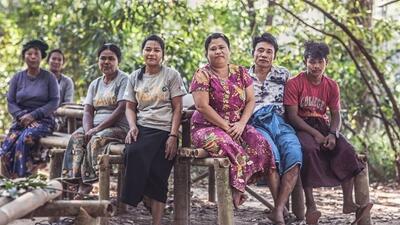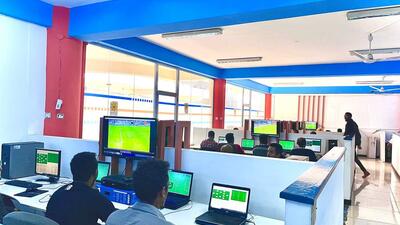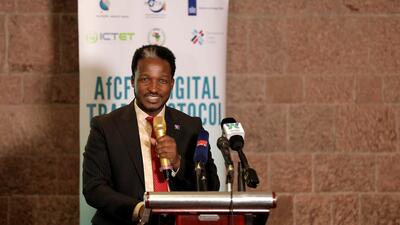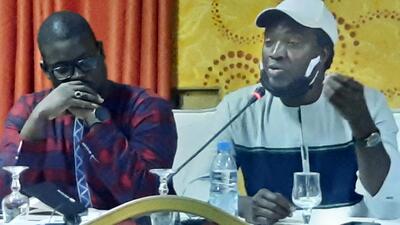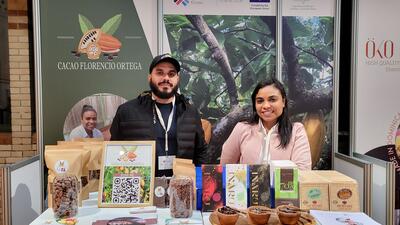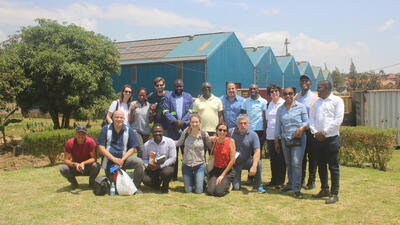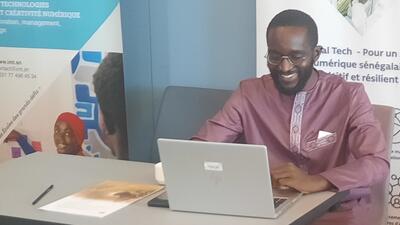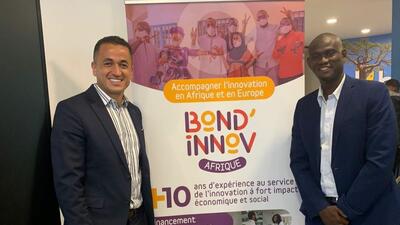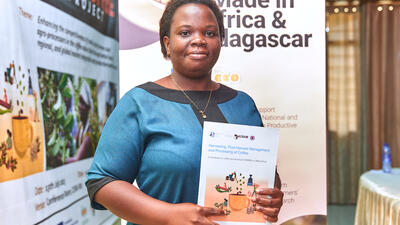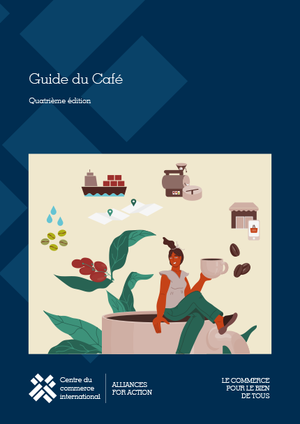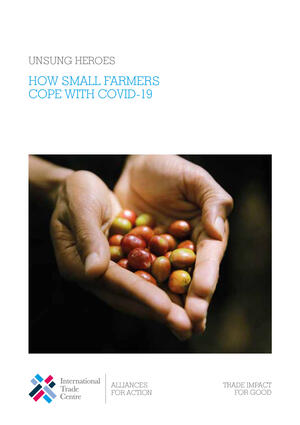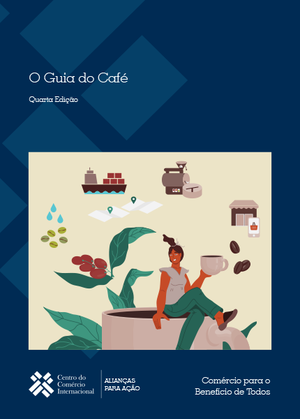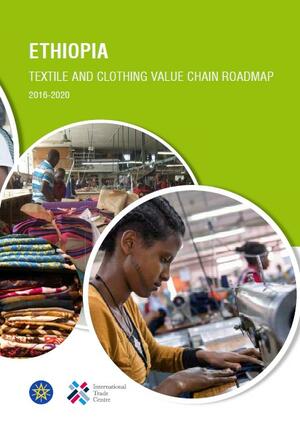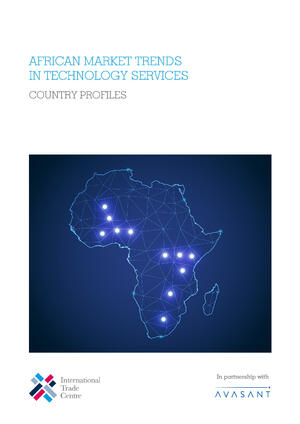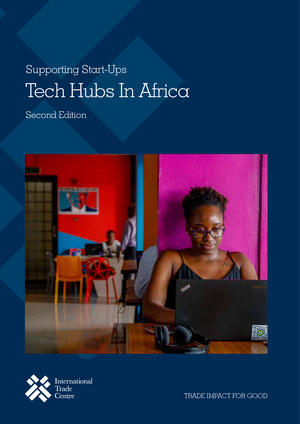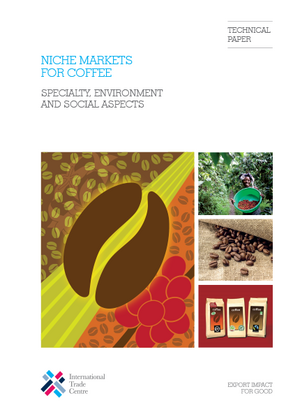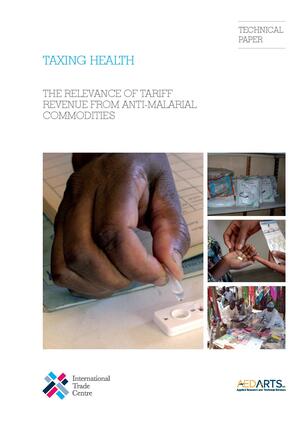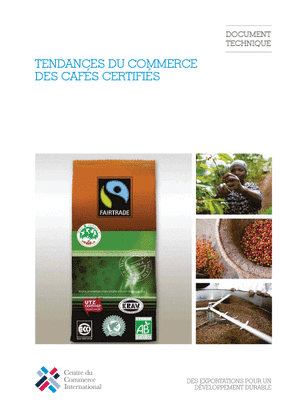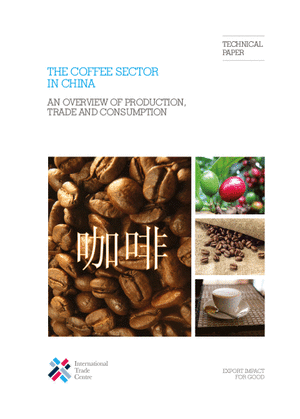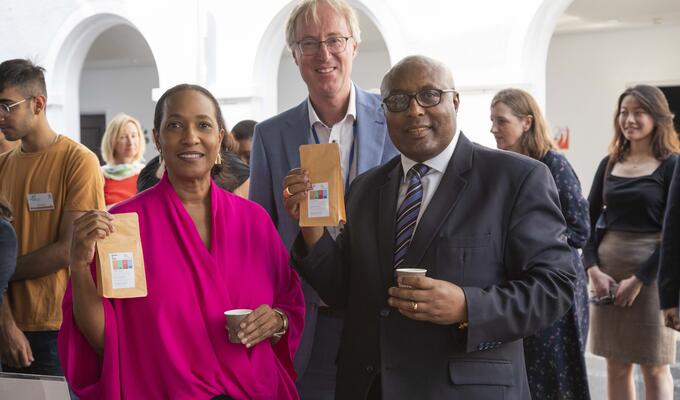

Growing a more sustainable coffee sector in Ethiopia
Ethiopia is building a sustainable transformation of its coffee sector with ITC support, showcased at WTO Aid for Trade session
Ethiopia prides itself as the birthplace of coffee. And in a growing collaboration with the International Trade Centre, the country is taking a bigger role in the global market, exporting higher-value coffee products made from its world-famous beans.
“Coffee is part of pretty much all of our lives,” said ITC Executive Director Pamela Coke-Hamilton.
“I want ITC’s technical assistance to help our partner countries reverse centuries of commodity dependence, to lead to diversified growth and poverty reduction,” she said this week at the World Trade Organization’s Aid for Trade session. “I want to change the narrative of ‘commodity-exporting countries’ to one of culture, resource, and innovation-rich countries capable of bringing sustainable, value-added products to the table.”
The Aid for Trade event highlights this work to build new trade connections, and to enable countries to earn more value from trade. Ethiopia’s successes are charting a path for other countries to grow their own industries.
Green coffee exports are worth about $20 billion globally, and Ethiopia produces about 7% of the world’s coffee. That represents thousands of livelihoods, a large percentage of export earnings, and an important domestic consumption.
“Coffee is a mainstay of Ethiopian economy,” said Zenebe Kebede, Ethiopia’s ambassador to the United Nations Office in Geneva. “The collaboration between the ITC and Ethiopian government to support the sector is exemplary.”
From seed to cup: from farmers to baristas
The cornerstone of ITC’s approach is the Alliances for Action initiative, which creates partnerships to transform food systems. To foster those business relationships, ITC publishes The Coffee Guide, now in its fourth edition as the world’s most comprehensive source of information on the coffee trade.
“ITC’s Coffee Guide is packed with information for coffee stakeholders from seed to cup – so producers, traders, roasters all the way to the consumer,” said Sarah Charles, co-author of the guide.
To give some flavour to this work, the team set up a coffee tasting session at a pop-up brew bar, run by baristas from Caffettino coffee shop in Geneva.
Their expert baristas noted the unique qualities of the Ethiopian coffee, which they found surprisingly floral with hints of orange in the acidity.
But the Coffee Guide is about more than getting a perfect espresso: the book covers issues around climate change, price volatility and living wages. By taking such a broad view, the sets out a path for building a more equitable coffee trade, with gains shared fairly across the supply chain.
It’s currently available in English, French and Spanish. A Portuguese edition is in the works, as are plans for an Amharic translation that would be accessible to Ethiopians.
“Ethiopia is one of the pioneer countries in terms of developing value addition for the domestic market and the regional markets,” said Federica Angelucci, the Alliances for Action programme officer.
That means the programme works with farmers and roasters to develop the coffee industry within the country, so it can export products that earn more money than unprocessed beans.
The six coffee cooperatives working with ITC represent a total of more than 600,000 smallholder farmers across Ethiopia.
Training for local roasters creates new opportunities for local coffee businesses. And those business also receive training in how to run to a business, and how to harness technology to help their businesses grow.
The Netherlands Trust Fund V (NTF) (July 2021 – June 2025) is based on a partnership between the Ministry of Foreign Affairs of The Netherlands and the International Trade Centre. The programme supports MSMEs in the digital technologies and agribusiness sectors. Its ambition is two-fold: to contribute to an inclusive and sustainable transformation of food systems, partially through digital solutions, and drive the internationalisation of tech start-ups and export of IT&BPO companies in selected Sub-Saharan African countries.






